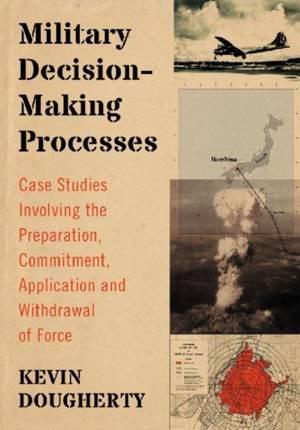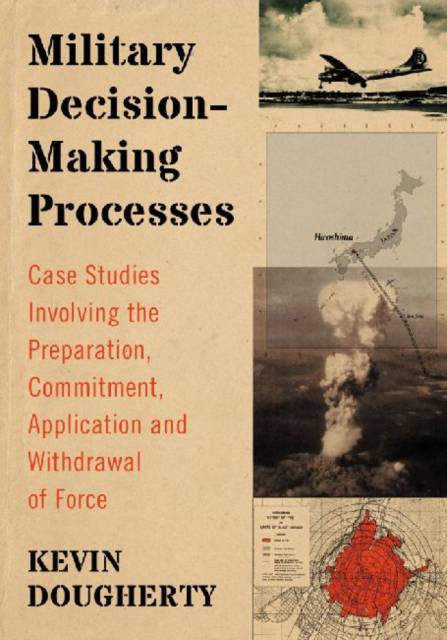
- Retrait gratuit dans votre magasin Club
- 7.000.000 titres dans notre catalogue
- Payer en toute sécurité
- Toujours un magasin près de chez vous
- Retrait gratuit dans votre magasin Club
- 7.000.000 titres dans notre catalogue
- Payer en toute sécurité
- Toujours un magasin près de chez vous
Military Decision-Making Processes
Case Studies Involving the Preparation, Commitment, Application and Withdrawal of Force
Kevin DoughertyDescription
President Bill Clinton, speaking as might any commander-in-chief, on the eve of his decision to deploy ground troops to Bosnia in 1995, declared he had "no responsibility more grave than putting soldiers in harm's way." Such a statement suggests that a study of the decision-making process associated with the weighty matters of using force would be enlightening. Indeed, it is. The decision-making process is far from standardized nor is it simple.
While all individuals associated with important decisions about national security and the lives of America's service members take their responsibilities seriously, the processes by which they reach their conclusions are varied and complicated. The book traces eight traditional and emerging theories or models of decision-making by first explaining the components of each model and then by analyzing its practical application through three case studies. Each chapter concludes with a discussion of the utility and explanatory power of the particular model.
Instructors considering this book for use in a course may request an examination copy here.
Spécifications
Parties prenantes
- Auteur(s) :
- Editeur:
Contenu
- Nombre de pages :
- 172
- Langue:
- Anglais
Caractéristiques
- EAN:
- 9780786477982
- Date de parution :
- 08-11-13
- Format:
- Livre broché
- Format numérique:
- Trade paperback (VS)
- Dimensions :
- 175 mm x 251 mm
- Poids :
- 317 g







